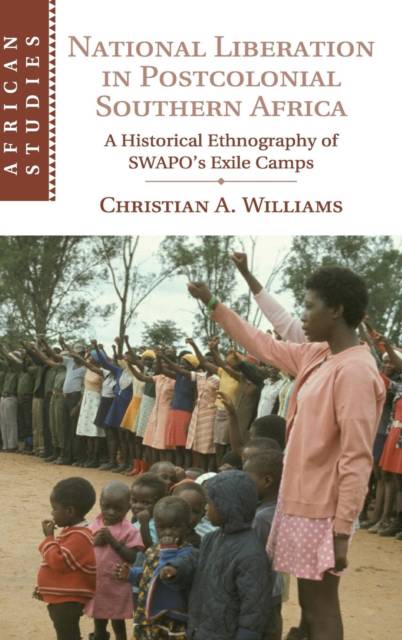
- Afhalen na 1 uur in een winkel met voorraad
- Gratis thuislevering in België vanaf € 30
- Ruim aanbod met 7 miljoen producten
- Afhalen na 1 uur in een winkel met voorraad
- Gratis thuislevering in België vanaf € 30
- Ruim aanbod met 7 miljoen producten
Zoeken
National Liberation in Postcolonial Southern Africa
Christian A Williams
€ 172,95
+ 345 punten
Uitvoering
Omschrijving
This book traces the South West Africa People's Organization (SWAPO) across its three decades in exile through rich, local histories of the camps where Namibian exiles lived in Tanzania, Zambia, and Angola. Christian A. Williams highlights how different Namibians experienced these sites, as well as the tensions that developed within SWAPO as Namibians encountered one another and as officials asserted their power and protected their interests within a national community. The book then follows Namibians who lived in exile into post-colonial Namibia, examining the extent to which divisions and hierarchies that emerged in the camps continue to shape how Namibians relate to one another today, undermining the more just and humane society that many had imagined. In developing these points about SWAPO, the book draws attention to Southern African literature more widely, suggesting parallels across the region and defining a field of study that examines post-colonial Africa through "the camp."
Specificaties
Betrokkenen
- Auteur(s):
- Uitgeverij:
Inhoud
- Aantal bladzijden:
- 284
- Taal:
- Engels
- Reeks:
- Reeksnummer:
- nr. 136
Eigenschappen
- Productcode (EAN):
- 9781107099340
- Verschijningsdatum:
- 8/10/2015
- Uitvoering:
- Hardcover
- Formaat:
- Genaaid
- Afmetingen:
- 153 mm x 238 mm
- Gewicht:
- 512 g

Alleen bij Standaard Boekhandel
+ 345 punten op je klantenkaart van Standaard Boekhandel
Beoordelingen
We publiceren alleen reviews die voldoen aan de voorwaarden voor reviews. Bekijk onze voorwaarden voor reviews.











